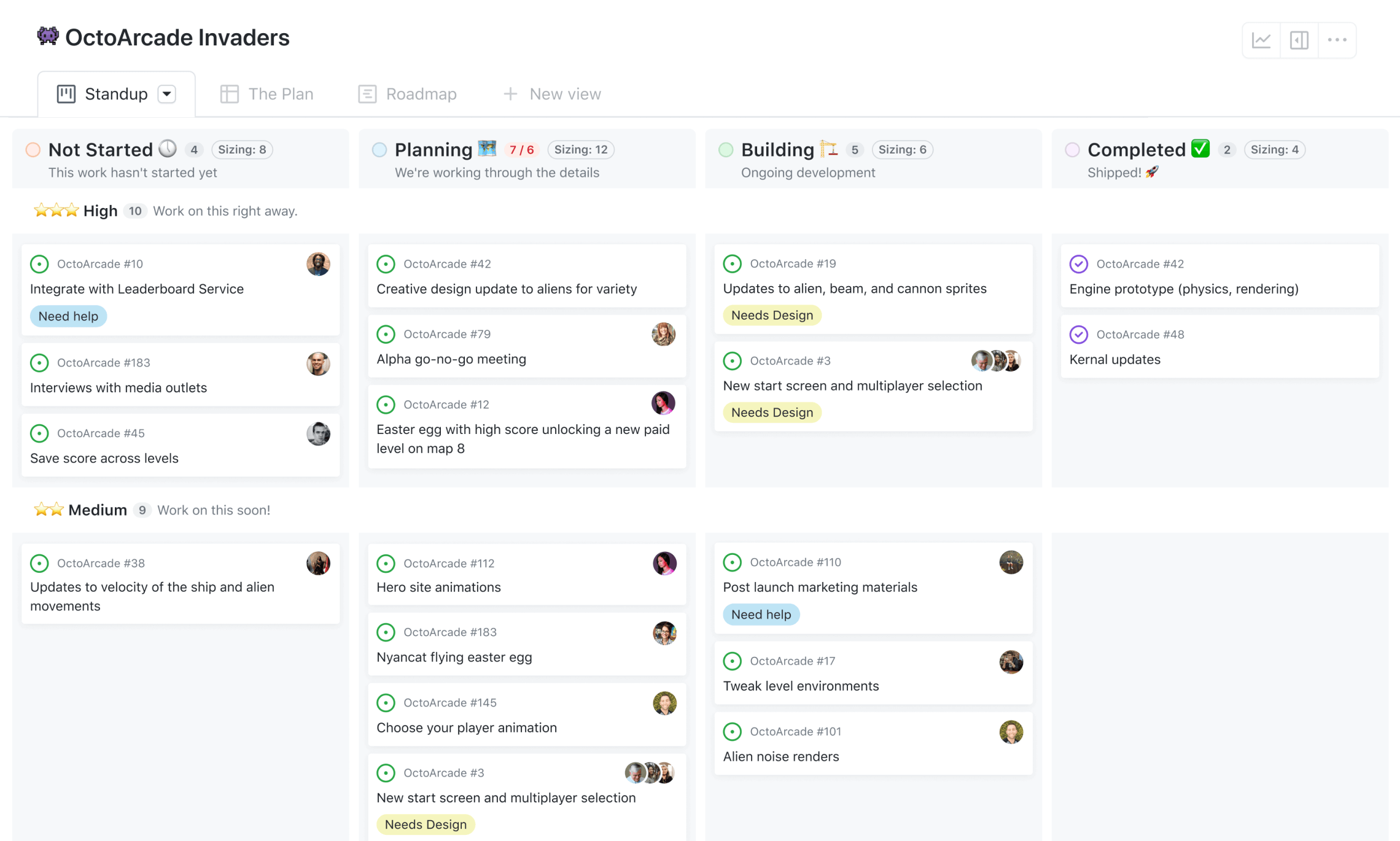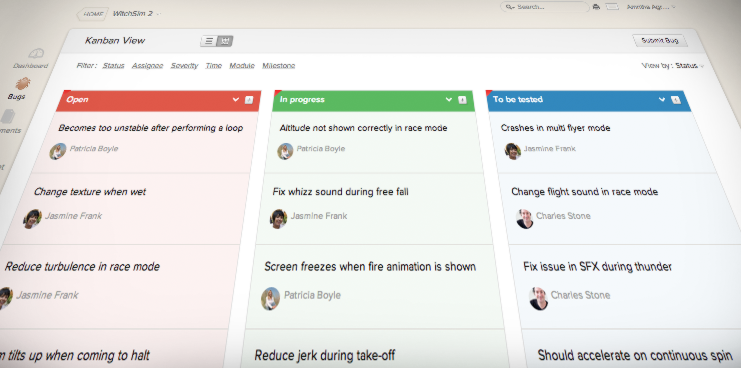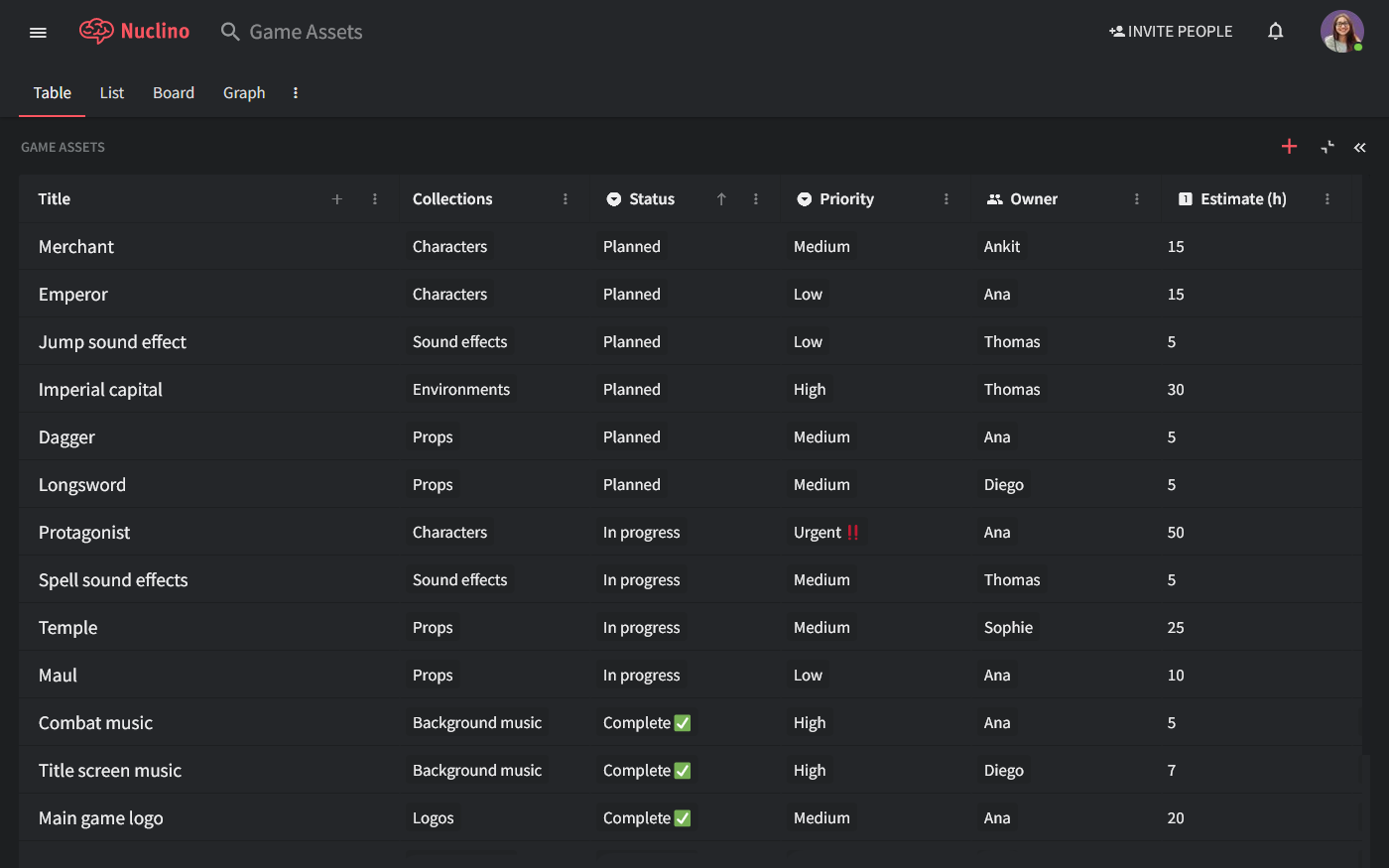Kanban Boards
A Kanban board is a list of notes or cards that is used to keep track of items in your project. It can be used for a whole host of things and is one of the most useful and versatile project management tools at your disposal.
It can be used to keep track of the tasks that need doing in order of priority, due date or task stage.

It can be used for reporting bugs with details about the problem and allows for tracking which bugs have been fixed and if those fixes have been tested.

It can be used to keep a list of assets that need to be produced. You can assign different artists to an asset and keep tabs on overall progress.

Kanban boards also generally allow you to show multiple different view such as calendars for project timelines and tables for seeing who is assigned to each task.
We could be here all day looking at all the possible variations of these boards. But there are a few important points to note when using them.
Keep it short
Generally, if a note is a page long then it should be two notes, sometimes more. Of course there are exceptions, like some large primary systems that require detailed specs. However, where possible, keep notes lean.
People don't read
Leading on from this. People don't read the notes, or at least not in detail. Try to include 90% of the critical information in the title.
Avoid titles like "Update UI" with a long description in the note and instead try "Update Menu Button Sprites" with a one line description of what you want. If needed split it into two tasks so that it is easier to parse at a glance.
Don't split the atom
There is a limit to this task splitting, if you do this in excess then you create a bunch of work for yourself. You should try to group similar tasks together. If someone is knocking out 10 tasks a day, then they are probably too small. The smallest task (your atom) should be around half a working day (however long that is for you).
If a task is smaller than that, group it together with other similar tasks or just do it in the moment if possible.
This advice does not apply to nooblets or newbies. They should absolutely split tasks down as much as possible to prevent any one task from getting overwhelming, and to lay out every step they need to learn.
Make your game
As great as project management is, unless you are a producer and this is your role, don't spend too much time on this. Don't spend everything on planning what you will do in ever greater detail but not actually building something.
Project management will help, but it's not a magic bullet. At the end of the day, your game isn't going to make itself.
Some good kanban board options:
- https://trello.com/
- https://www.notion.so/
- https://docs.github.com/en/issues/planning-and-tracking-with-projects
- https://www.codecks.io/
They do different things but are all pretty similar, there are only so many ways you can cut a sandwich.